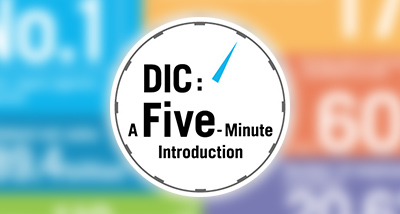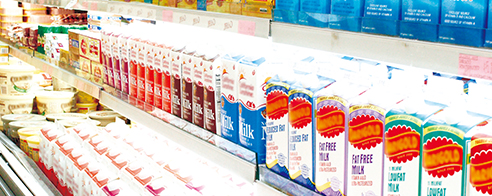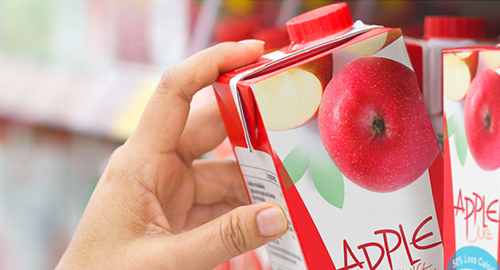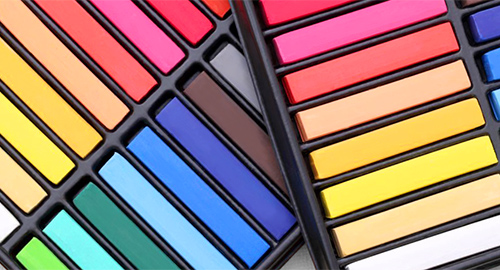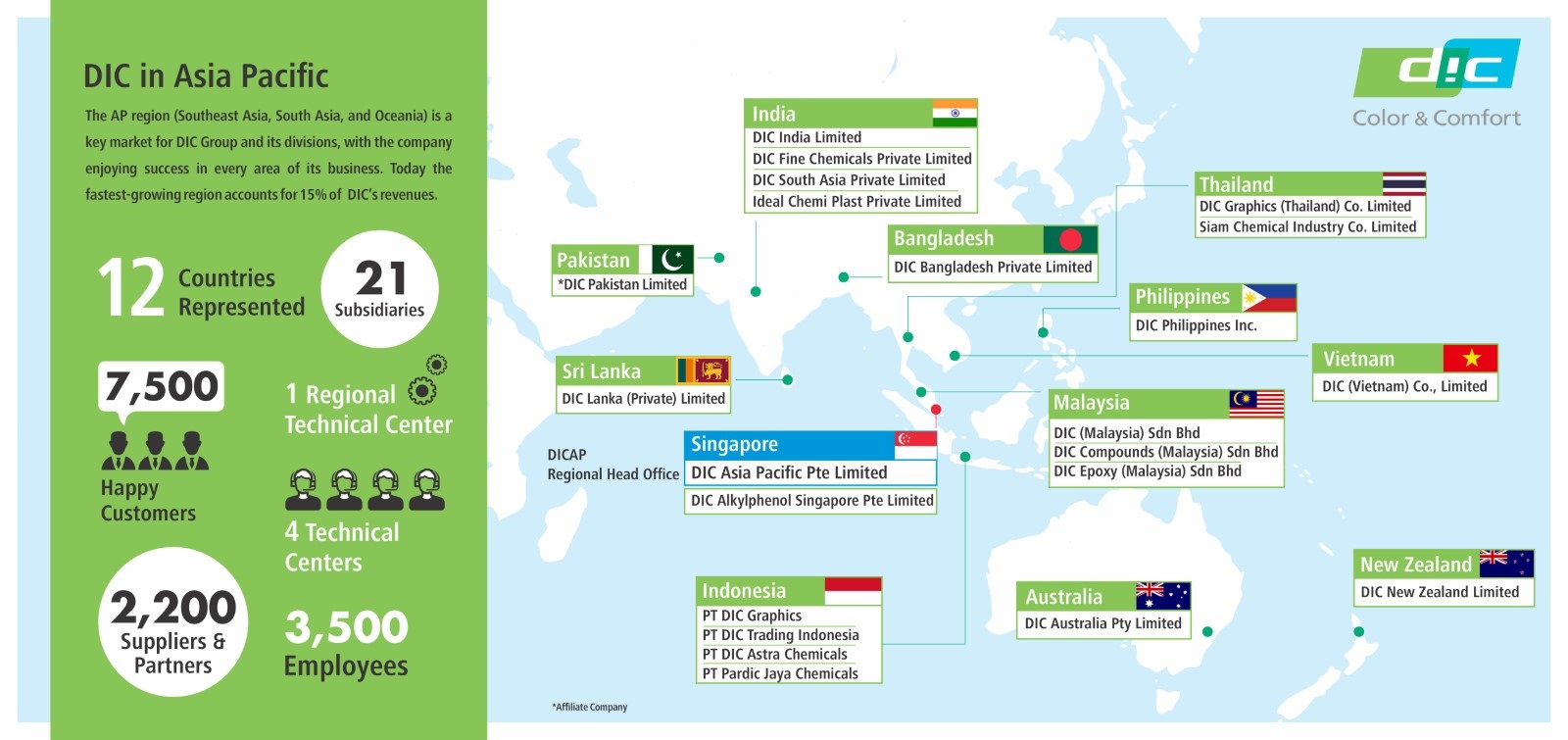News
-
Jun. 5, 2025 Sustainability News Release DIC Coextruded Multilayer Packaging Film Obtains ISCC PLUS Certification
-
May 12, 2025 Sustainability News Release Discovering a New Spirulina-Based Environment-Friendly, Sustainable
Strategy for Suppressing Parasitic Infection -
Apr. 14, 2025 Management & IR News Release DIC Subsidiary in the United States Opens New Facility for Cultivating Edible Algae with the Goal of Realizing Sustainable Smart Farming
-
Mar. 28, 2025 Management & IR Annual Securities Report (Fiscal year from January 1, 2024 to December 31, 2024)
-
Jan. 6, 2025 Business & Product DIC Launches Special Website for New Multicopter Drone HAGAMOSphere™
-
Jan. 6, 2025 Business & Product DIC Launches Special Website for New Multicopter Drone HAGAMOSphere™
-
Nov. 6, 2024 Business & Product News Release DIC and FPCO Achieve the Closed-Loop Recycling of Colored and Patterned Foamed Polystyrene Food Trays Using Material Recycling
-
Oct. 10, 2024 Business & Product News Release DIC and Unitika Collaborate to Develop a Specialty PPS Film with Low Dielectric Properties Suitable for Use in a Key Material for Millimeter-Wave Printed Circuit Boards and Millimeter-Wave Radar
-
Jun. 24, 2024 Business & Product [Vision Watch] Carbon Black Pigment Alternative with Outstanding LiDAR Signal Response—Spectrasense™ Black L 0082 Delivers Neutral Gray and Dark Colors with Outstanding Solar Heat Management & Excellent LiDAR Signal Detection for Superior Autonomous Vehicle Performance
-
May 20, 2024 Business & Product [Vision Watch] Algae Power! Algae Oil-Based EP Additives Could Deliver More Sustainable Green Lubricants, Reducing Carbon Emissions While Also Boosting Energy Savings and Reducing Water Consumption in the Automotive Industry and Other Industrial Sectors
-
Apr. 14, 2025 Management & IR News Release DIC Subsidiary in the United States Opens New Facility for Cultivating Edible Algae with the Goal of Realizing Sustainable Smart Farming
-
Mar. 28, 2025 Management & IR Annual Securities Report (Fiscal year from January 1, 2024 to December 31, 2024)
-
Jan. 6, 2025 Management & IR News Release DIC 2025 New Year’s Message
-
Nov. 14, 2024 Management & IR News Release Notice of the Changes Related to Organizations, Executives and Directors
-
Aug. 20, 2024 Management & IR News Release DIC Publishes the DIC Report 2024 Integrated Report
-
Jun. 5, 2025 Sustainability News Release DIC Coextruded Multilayer Packaging Film Obtains ISCC PLUS Certification
-
May 12, 2025 Sustainability News Release Discovering a New Spirulina-Based Environment-Friendly, Sustainable
Strategy for Suppressing Parasitic Infection -
Sep. 10, 2024 Sustainability News Release DIC Acquires the International Sustainability & Carbon Certification’s ISCC PLUS Certification
-
Aug. 6, 2024 Sustainability News Release DIC Is Named an Asia–Pacific Climate Leader for the First Time
-
Feb. 8, 2024 Sustainability News Release DIC Is Listed in S&P Global’s Sustainability Yearbook 2024
-
Feb. 28, 2024 R&D News Release DIC Develops Basic Technology for an Innovative Epoxy Resin Curing Agent
That Is Heat-Resistant up to over 200°C and Can Be Recycled -
Sep. 11, 2023 R&D News Release DIC’s Near-Infrared Fluorescent Dye Adopted for Use in MIT-Developed BrightMarker Embedded Invisible Fluorescent Tags for Object Tracking
-
Aug. 4, 2023 R&D News Release Development of Innovative Biomanufacturing Technologies Using CO₂ and H₂ as Feedstocks for Hydrogen-oxidizing Bacteria
-
Apr. 6, 2022 R&D News Release DIC Commences Partnership with Canadian Quantum Chemistry and
Quantum Computing Start-Up Good Chemistry Company -
Mar. 25, 2021 R&D News Release Sustainable Skincare from Suizenji Nori Blue-Green Algae—DIC & Green Science Materials Leverage SACRAN™ Moisture-Retention Effects
-
Nov. 22, 2024 Exhibition & Event News Release DIC to Unveil Omnidirectional Multicopter HAGAMOSphere™, Named as CES Innovation Awards® 2025 Honoree, at CES 2025
-
Oct. 7, 2024 Exhibition & Event News Release DIC Announces Participation in TOKYO PACK 2024 with an On-Site Booth
and a Special Exhibition Page on Its Global Website -
Feb. 2, 2024 Exhibition & Event News Release DIC Group to Participate in PAINTINDIA 2024, one of the largest paint-related materials exhibitions in India
-
Oct. 4, 2023 Exhibition & Event DIC to Exhibit at the 3rd Annual Sustainable Material Expo (SUSMA) Tokyo Show Via Virtual Platform and On-Site Booth
-
Dec. 7, 2022 Exhibition & Event DIC to Exhibit at the Second Annual Sustainable Material Expo (SUSMA) Tokyo Show Via Virtual Platform and On-Site Booth
-
May 30, 2024 Other DIC Revamps the Website Top Page Banner and About DIC Page
-
Jun. 8, 2022 Other DIC Launches the Asia Pacific Website
-
Sep. 17, 2021 Other Notification of Rescindment of Temporary Suspension of ISO 9001
Certification for the Chiba and Hokuriku Plants -
Mar. 18, 2021 Other Notification Regarding Temporary Suspension of ISO 9001 Certification for the Chiba and Hokuriku Plants
-
Jan. 12, 2021 Other DIC Brand Video as a Company Introduction
Business & Products
Search by Application
DIC in the Asia Pacific
DIC has entrenched presence in Asia Pacific, with 25 plants and offices in 12 countries, providing quality products and proximity services.




